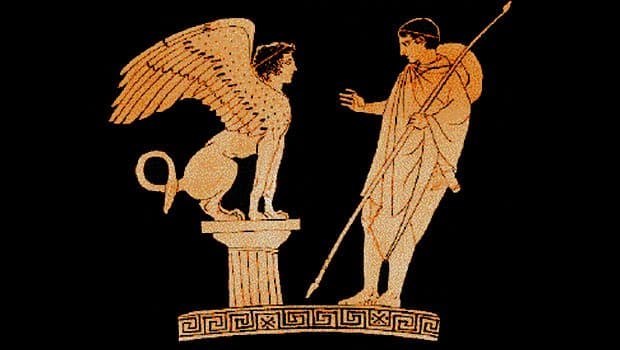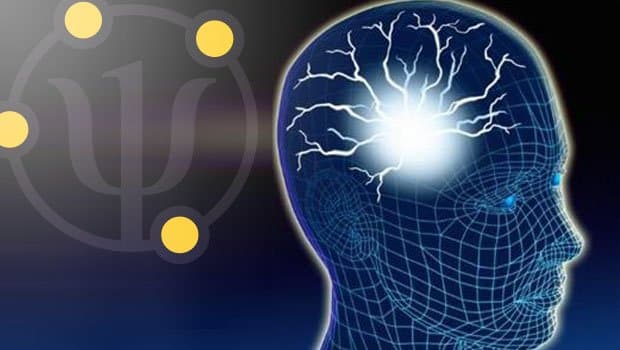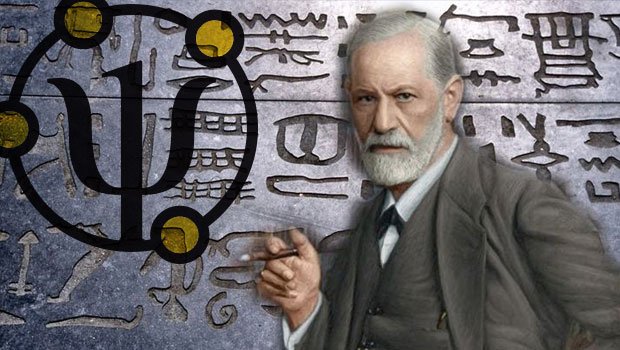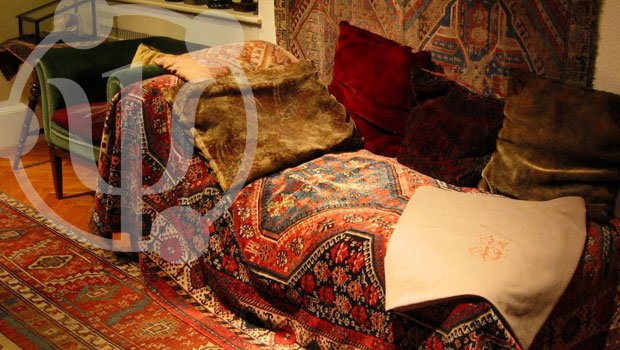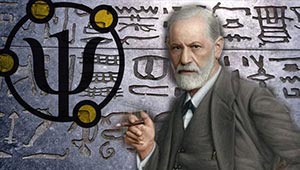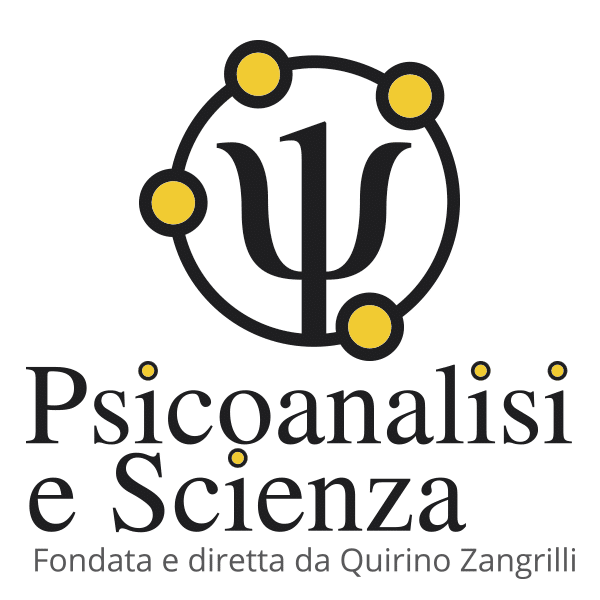The Oedipus myth, even though in different versions and forms, is a myth common to the world’s populations and for this universality has acquired a capital importance for the researchers who deal with human science. Let’s try to follow the exposition.
King Laius, in exile at the court of King Pelops in Pisa, fell in love with the king’s son, Chrysippus, and abducted him: for this reason all his lineage was cursed
The first observation that we can make is that Oedipus atones an event which does not regard his personal history, but that of his family: the myth, in fact, begins before his ontogenetic existence. He belongs to a cursed lineage; but what is a “curse”? Nowadays, it could be justly intended as a pathogenic hereditary information (energetic trace): it is sufficient to think that for centuries hereditary organic syndromes (such as haemophilia or thalassemia or metabolic diseases which would determine typically evident monstrosities) must have seemed curses. So would have seemed curses, diseases characterised by repetitive destructive and/or self-destructive conducts that today we would define ‘of psychiatric competence’. Therefore, the existence of this man called Oedipus is influenced by the presence of an ancestral conditioning.
On his return to Thebes, Laius married Menoeceus’s daughter, Jocasta, but shortly after the wedding an oracle warned him that a son born from Jocasta would have killed him
The action of the oracle is specifically that of a mysterious voice of divine origin (etymologically the word ‘oracle’ derives from the latin orare), which provides responses about unknown events: today it would be more prosaically defined as an insight, in other words, the capability or the act of becoming aware, often in the form of a sudden flash of recognition of the nature of an unconscious situation.
When Jocasta gave birth to a son, Laius made two holes in the infant’s feet (perhaps to expose him to the elements or in order to make him bleed to death or in order to avoid that after his death his spirit could not walk) and handed him over to a Theban shepherd with the order to abandon him on mount Kithairon
Oedipus means ‘swollen foot’. There are many observations to be made regarding this. Above all, the fact that the father performs a violent action to hurt a part of his son’s body. It is not difficult to recognise in this action the camouflaged representation of the act of castration. It should not be thought of simply as being in the presence of a psychic vicissitude which is totally unbound from real events. In 1874 Darwin hypothesised the existence in ancient times, of a type of social organisation denominated ‘primitive horde’, in which human beings lived in small groups upon which a strong, violent and jealous man would dominate and would take possession of all the women, sleeping with them and keeping them far from their own children and from other young males who, when threatening his dominance, he would often emasculate.
The same Freud hypothesised that the repetition of such traumatic events along the evolutive path of the human being would leave a mnestic trace in which the original event that truly happened, would be substituted by unconscious representations and fantasies in each individual (Group Psychology And The Analysis Of The Ego, 1921 – Moses And Monotheism, 1934-38). The particularity of the foot (moreover present in many myths and literary works, it is sufficient to think of the famous ‘Achilles tendon’) will return once again in the Oedipus myth.
Not only; the name Oedipus (swollen foot) also expresses a certain genealogical-family characteristic: Oedipus is Laius’s son (the Left-hander), the youngest son of Labdacus (the Lame), descendant of Efisto (the Lame) (Veronique Caillat: “Mito ed inconscio”, Bollettino dell’Istituto Italiano di Micropsicoanalisi, n° 17, 1994). Therefore, the father Laius wounds and pushes away from him his own son, in other words he tries to eliminate him.
The shepherd of Thebes, commissioned by King Laius to eliminate Oedipus, disobeyed and entrusted him to a Corinth shepherd. The latter took him to King Polybus who, being childless, adopted the infant naming him Oedipus
Oedipus’s salvation is therefore owed to the casual encounter with a childless man, Polybus, King of Corinth. In this passage the only solution to the Oedipus drama is represented: leaving the blood relatives in order to direct one’s own urging pressure outside of the family system.
One day, during a banquet, a young man mocked Oedipus because he did not look like his parents, insinuating that he was a bastard, and for this reason Oedipus went to the Delphic Oracle to question him about his true origins
Here is represented a situation which is rather common in the childhood of each of us. It is not difficult to remember how the most burning insults which children use are those related to the suspects of the paternity authenticity. Equally that vicissitude, so wide spread to be defined universal, of being a foundling hosted by chance by the family, manifests itself. This whole spectrum of fantasies, defined as ‘family romance’ by Freud himself, expresses the distortion which the child makes of the kinship identity. In one of the most common versions of the fantasy the child believes to have been, in reality, conceived by another couple, generally people of noble rank or a high social position, from which he has been separated at birth and to which one day he will be reunited. The family romance absolves several functions in the psychic economy of the confrontation process with the mystery of the origins. For now, we will limit ourselves to saying that such a fantasy complex permits to mitigate the intense sense of guilt nurtured by the desire of sexually possessing his parents by excluding the incestuous nature (“If I am a foundling, those, who I desire, are not may parents”).
Oedipus was told by the Oracle that he was destined to kill his own father and to marry his mother and the Oracle priests sent him away, tremulous with disgust
In this passage the unconscious perception of the aggressive-sexual pressures towards one’s own parents is represented literarily: in the most known version of Oedipus (Positive Oedipus) the male child unconsciously desires to copulate with his mother. Equally, the realisation of such incestuous desires urges him to direct his aggressive-destructive pressures towards his rival: the father. The disgust expressed by the Priests is the representation of the repulsion that such unconscious desires meet emerging at the conscious level and of the activity of moral judgement undertaken by that ultra-specialised compartment of the Ego, called Super-Ego.
Convinced of being the son of Polybus and of Queen Merope, Oedipus, in the attempt of escaping his destiny, decided to go away from Corinth and never to come back and he headed towards Boeotia. During his journey, though, at a crossroads, he met a foreigner (King Laius, his true father) who was travelling on a chariot. Laius’s charioteer ordered Oedipus to give way, but he refused. So the charioteer injured Oedipus’s foot with a wheel and beat him with a club. Oedipus who was furious killed him together with the others, including his real father, with the exclusion of a servant who managed to escape.
The psychic system does not remain passive towards the conflicts that originate between urging pressures, moral prohibitions and real needs, but activates attempts of mediation or defence that tend to organise themselves with modalities of repetition which structured themselves through the repetition of the traumatic events from generation to generation.
Oedipus tries to defuse the conflictual drama putting into act an efficient as well as elementary defence mechanism: the distancing from the object. But, in the same way that, in the myth such an attempt to escape his own destiny is shattered with the casual encounter at a cross-roads with his Rival, in the same way, in real life a child, for as many efforts he makes to push away the Oedipus temptation, he cannot concretely fulfil his escape and, as Oedipus, he will find his parents again at every angle.
Also bear in mind that, even if it would be possible to achieve a physical distancing from the incestuous object, it is certainly not possible to escape from the whole world and from one’s own unconscious desires. In the myth, the fatal meeting happens at a cross-roads (some authors refer that it could have been where three roads meet, symbol of the sentimental triangle mother-father-child); there is, however, even on a poetical-literary level, a strong representation of a casual meeting of existences, the meeting of destinies.
Nonetheless, the crossing of several roads is such a typical oneiric representation that the psychoanalyst knows that every time it presents itself in a dream, he can be sure the patient is in an Oedipus reactivation phase. The child, like the unfortunate Oedipus, encounters hence the paternal authority which blocks the road to the urging satisfaction: it is the dispute, the clash, the deploying of aggressiveness. Oedipus’s foot is injured once again. In this way the Poet expresses the obscure perception of the mocking repetition of the destiny which only after thousands of years, found in Sigmund Freud a scientific formulation in what the Viennese scientist defined as ‘compulsion to repeat’, in other words, the unconscious necessity of placing oneself in a traumatic or painful situation once again, even though absurd and humiliating. In other terms the compulsion (unconscious constriction) to repeat traumatic situations without being aware of one’s own participation in the reconstruction of the primal situation nor the relation between the present situation and the past experience. Without going into the extremely important implications which Freud attributed to the observation that the repetition of painful experiences is in clear contrast with the pleasure principle, we will limit ourselves in observing that the unconscious aim of reconstructing past traumatic experiences consists in the illusion of being able to retroactively modify the course of events: we condemn ourselves to cyclicly reciting the same script with the illusion of changing that ‘line’ which made us suffer so much! Oedipus (just as the child in its imagination) does not succumb to the paternal authority but rebels, fights and kills his father and his substitutes: the same massacre (realised through representations and affects and eventually organised in imaginary acquired patterns) [phantasies or phantoms] repeats itself inexorably in the child’s mind every time his desire of possessing his mother clashes with his rival. In the depth of our unconscious we are all parricides.
Let’s return to the myth: Oedipus still maintains his defensive state of unconsciousness about the dramatic events that regarded him, eliminating from his mind any possibility of a connection between his actions and the destiny of his parents.
He reaches the Sphinx (The Strangler), a winged monster with a woman’s head and the body of a lion which asks any unwise human who dares to approach it, a riddle which implies a rather simple answer, but to which no one until then had been able to answer.
When he arrives at Thebes, Oedipus finds the habitants of the city in desperation: the king had been killed on the road that lead to Delphi where he was going to consult the oracle regarding the Sphinx, a dangerous monster which devoured whoever passed close to it and did not know how to answer its riddle: “Which creature walks on four legs in the morning, on two at noon and on three in the evening, and the more legs it has, the weaker it is?”.
No one before Oedipus had been able to resolve the mystery: why such resistance?
Evidently, the perception of the human being’s fragility, of life’s caducity and the anguishing representation of that descending parable which is the human existence, produces in every person a reaction of denial which blinds the mind and impedes the insight of the cruel reality: life is an aimless experience which is achieved through painful transformations and inevitably concludes with death.
As Laius was dead and the Sphinx afflicted the already exhausted population, the regent Creon offered the throne together with his sister’s hand in marriage (Jocasta) to whoever answered the riddle and freed the city from the Sphinx.
Oedipus solved the riddle: “It is man, who crawls on all fours as a baby, walks on two legs as an adult, and walks with a cane in old age”. Thebes was liberated from the Sphinx and from the pestilence but the oracle’s vaticination came true: Oedipus had killed his own father and was about to sleep with his mother.
One of the least highlighted aspects by the various scientists who have studied the Oedipus myth is the role of Jocasta. If we could picture the route (even physical) of Oedipus during the temporal parenthesis described by the myth (and today it would be possible without any difficulty with a computer) we would find a point of attraction in which the various trajectories tend to converge: Thebes and, at its centre, Jocasta. The Queen is a passive point of attraction, after all she does not act but waits for the events to happen, for the dynamism of the action to return to its origin, the vagina-uterus-den which generated Oedipus and to which the young man yearns in his unaware wandering: the door towards the Origin and the End, the entrance to the Nameless, to the Shapeless, to the Void, the propulsive engine of everything that exists.
Let’s look at the comment regarding this of a young woman in intensive psychoanalysis who compares herself to the Myth: “Oedipus, despite his strength in the end will do, without knowing it, what he didn’t want to do: Something, an enormous force pushed him towards his mother who was waiting for him, passive in the beginning and passive in the end“.
After the complex events which lead Oedipus to the recognition of the tremendous truth, Jocasta hung herself and Oedipus blinded himself.
If, in this passage the expiation through suicide and self-mutilation is directly expressed, often in real life, the incestuous desires determine a more camouflaged behaviour of self-punitive expiation: the elaboration, depending on the patient’s background, can follow a psychic route (problems of sexual impotence, compulsive ideas, hysterical manifestations, etc.) or a somatic route with the construction of illnesses of various aspects and graveness. Here is the insight of the phenomenon by a young woman in intensive psychoanalysis who had been seriously ill for years afflicted in various areas of the osteoarticular apparatus: “This illness impedes me from growing, from being happy to be a woman. All this is to do with the Enemy: my mother. She has crushed me and she has continued doing it in order to stop me from growing. It is a pain which serves to stop me from sleeping with anyone, to stop me from having children and I suffer every time I remember I am a woman“.
The events of the Oedipus Story, on which Freud concentrated his attention, do not however complete the myth. The Viennese Master presented the first, systematic, enunciation of the myth in “The Interpretation Of Dreams”, in 1899, and it conforms itself to the commonly known version. Version which founds itself on the capital omission of a prologue of primary importance. Let’s take a look:
Thebes was founded by Cadmus, son of Agenor, king of Phoenicia, through the following events. Cadmus was the brother of Europa, an extremely beautiful girl whom Zeus fell in love with. The “Father of the gods and of men” (by Homer) saw her playing on the seashore with her handmaids, transformed himself in to a white bull and lay down allowing her to caress him.
Europa, in no way intimidated, mounted the bull which immediately entered the water moving quickly out to sea: Zeus had abducted Europa and, after revealing his true identity, made love to her under a plane tree. Europa’s father, Agenor, sent his sons Cadmus, Phoenix and Cilix to look for her. Cadmus, after searching exhaustingly, consulted the oracle of Delphi to ask for advice and the oracle ordered him to forget Europa, to abandon every kind of search and to find a heifer with a half moon on its coat. He vaticinated that Cadmus would have founded a city in the first place where the heifer stopped to rest. The presage came true and Boeotia was the region where Cadmus was about to trace the perimeter of the new city with his plough.
Cadmus, with the intention to sacrifice the heifer to Athena, sent some of his men to draw water from a nearby spring. But a dragon that guarded the spring, son of Ares, killed the men and began to devour them.
When Cadmus found out about the destiny of his men, he killed the dragon.
Athena manifested herself and said: “Pull out the dragon’s teeth and sow them in the drill which your plough will trace in this untouched land”. Cadmus obeyed and, with great astonishment, saw a whole population of warriors swarming from the drills which began to fight and massacre each other until only five remained. Cadmus calmed them and took them as allies in the foundation of Thebes.
Finally Cadmus and all his descendants, among which Laius, father of Oedipus, suffered a chain of tragic events due to Juno’s (Zeus’s wife) tremendous jealousy, regarding the abduction of Europa.
Now that we have acquired such rich and important material we could make several schematic observations using the synoptic scheme which follows:
 |
Stasis
|
|
|
The abduction of Europa, by Zeus (the Father of gods and men) leads Cadmus, in his aggressive impetus of jealousy, into a series of attempts that makes him consult the Oracle of Delphi
|
 |
Jealousy
Aggressive-sexual pressure |
|
The Oracle imposes the renunciation of the conflict and the search for the revenge. A sort of elaboration of the conflict.
|
 |
Renunciation
Stasis |
|
From the exhausting of the conflictual pressure (the heifer’s rest) Cadmus finds the site where to build the city of Thebes
|
 |
Construction
|
|
A dragon, Guardian of a spring, kills all of Cadmus’s allies, activating in him a desire of revenge and destruction.
Cadmus kills it |
 |
Aggressive-sexual pressure
|
|
Pallas intervenes sedating the hero and invites him to sow the dragon’s teeth in the soil
|
 |
Renunciation
Stasis |
|
From the germ of fury and conflict a population of warriors is generated
|
 |
Construction
|
|
The army of warriors begins a ferocious and uncontrollable battle which leads them to annihilate each other until only five warriors remain who look daggers at each other.
|
 |
Aggressive-sexual pressure
|
|
Cadmus calms them
|
 |
Renunciation
Stasis |
|
and takes them as his allies in the foundation of Thebes
|
 |
Construction
|
Repeatedly reading the column on the right we can familiarise ourselves with a dynamic scheme which repeats itself and which can be summarised in the following sequence: stasis-pressure (aggressive or sexual or sexual-aggressive) – stasis – construction. The myth seems to show us an unexpected situation: that the sexual-aggressive conflict is important to interrupt a static situation which would tend to the impoverishment of the system, while its elaboration would bring about vital attempts.
Certainly, we find ourselves unprepared observing this interpretation of the myth but the whole complex story of Oedipus, which is however the story of humanity, seems to communicate that such events, which considered apart can express sufferance if observed in their dynamism, constitute a vital plot which pushes humanity, through the succession of generations, to the realisation of neutral attempts in their essence and aim. The only, tiny, colossal enterprise which is consented to human beings is: to try, no matter what, no matter how, to transform the tension, leaving traces. The story of the man called Oedipus, which is the story of each one of us, is the story of a sufferance which allows us to live, it breaks the continuity and introduces discontinuous attempts which have a simple name: Life. If we could express ourselves in more colourful terms, it is like the famous electric discharge (or lightning) which shoots through the “primeval soup” and sparks off the first vital reaction; in more prosaic terms the catalyst of the phenomena of organisation.1
Written by: Quirino Zangrilli © Copyright
Translated by Linda De Nardo
NOTES:
1 – As often happens there is also another level of explication of the phenomena which anchors itself mainly to the biological-behavioural level of the history of the phylogenetic development of humanity. The universality and the tenacious persistence of the Oedipus-castration is based on, in my opinion, its strategic function of the safeguarding and the survival of the human species: Oedipus, phylogenetic legislation which pushes towards incest, has made possible humanity’s existence thanks to the copulation between consanguineous members of small groups in extremely difficult environmental conditions. For this reason it is inscribed in the psychism as a primary mechanism of the conservation of the species and cannot be totally abandoned.
Nel 2024 riceve il Premio Accademico d’Onore della Accademia Culturale Internazionale Cartagine 2.0.
Nel 2024 docente ad Almaty – Kazakhstan presso il workshop di psicoanalisi sul tema della violenza, promosso dall’Università di psicoanalisi di Mosca in collaborazione con l’Istituto svizzero di micropsicoanalisi.
Doctor Quirino Zangrilli was born in Fiuggi in 1955. Graduated with honours in Medicine and Surgery in 1980, he practices Psychoanalysis, with intensive method, since 1982. He is author of 72 scientific pubblications. He has attended as speaker or president of session to many national and international scientific Conventions. His book “La vita:involucro vuoto” (Life: empty involucre), published by Borla in 1993, has been in use by the Chair of Dynamic Psychology at Turin’s University since 1994. He is the author and founder of the multimedia review “Psicoanalisi e Scienza” (Psychoanalysis and Science), the most read Italian on line review of psychoanalysis. In 2012 he participated as a Speaker at the Scientific Festival of BergamoScienza. In 2013 he illustrated his research on the maternal-fetal interaction in the Special Session of the XI World Congress of Perinatal Medicine in Moscow with his relation “Intrauterine Imprinting”. He is visiting teacher at Moscow Institute of psychoanalysis and training psychoanalist of Swiss Institute of Micropsychoanalysis.
In 2024 he is a teacher in Almaty – Kazakhstan at the psychoanalysis workshop on the topic of violence, promoted by the Moscow University of Psychoanalysis in collaboration with the Swiss Institute of Micropsychoanalysis.
In 2024 he received the Honorary Academic Award of the Carthage 2.0 International Cultural Academy
Le Le Docteur Quirino Zangrilli est né à Fiuggi en 1955. Diplômé avec mention en Médecine et Chirurgie en 1980, il pratique la psychanalyse depuis 1982, en utilisant une technique intensive. Il est l’auteur de 72 livres et publications scientifiques. Il a participé en tant que conférencier ou président de session à de nombreuses conférences scientifiques nationales et internationales. Son livre “La vie : enveloppe vide”, publié par Borla en 1993, est adopté depuis 1994 par la Chaire de Psychologie Dynamique de l’Université de Turin. En 1994, il a reçu le “Prix national Ciociaria de médecine”. Il a conçu et fondé le magazine multimédia “Psicoanalisi e Scienza”, qui est le magazine de psychanalyse en ligne en italien le plus suivi au monde. (Source : Entireweb, Alexa, Google, Virgilio, Arianna., etc.). En 2012, il a participé en tant que conférencier à la colloque scientifique de BergamoScienza. En 2013, il a exposé ses études sur l’interaction materno-fœtale lors de la session spéciale du XIe Congrès mondial de médecine périnatale à Moscou avec le rapport “Intrauterine Imprinting”. Il est chargé d’enseignement au cours de spécialisation de trois ans en psychanalyse, psychothérapie psychanalytique et consultation psychanalytique à l’Université de Moscou. Il est membre didacticien de l’Institut Suisse de Micropsychanalyse et de la Commission pour la Pratique de celui-ci.
En 2024, il enseigne à Almaty – Kazakhstan à l’atelier de psychanalyse sur le thème de la violence, promu par l’Université de Psychanalyse de Moscou en collaboration avec l’Institut Suisse de Micropsychanalyse.
En 2024, il reçoit le Prix Académique Honoraire de l’Académie Culturelle Internationale Carthage 2.0.
В 2024 году является преподавателем в Алматы – Казахстан на семинаре по психоанализу на тему насилия, проводимом Московским университетом психоанализа в сотрудничестве со Швейцарским институтом микропсихоанализа.
В 2024 был награжден Почетной академической премией Академии Международной Культуры «Карфаген 2.0».

